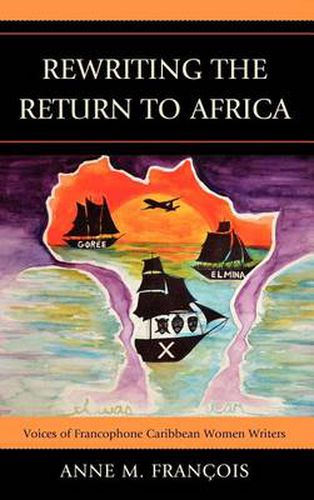Readings Newsletter
Become a Readings Member to make your shopping experience even easier.
Sign in or sign up for free!
You’re not far away from qualifying for FREE standard shipping within Australia
You’ve qualified for FREE standard shipping within Australia
The cart is loading…






Rewriting The Return to Africa: Voices of Francophone Caribbean Women Writers examines the ways Guadeloupean women writers Maryse Conde, Simone Schwarz-Bart and Myriam Warner-Vieyra demystify the theme of the return to Africa as opposed to the masculinist version by Negritude male writers from the 1930s to 1960s. Negritude, a cultural and literary movement, drew much of its strength from the idea of a mythical or cultural reconnection with the African past allegorized as a mother figure. In contrast these women writers, of the post-colonial era who are to large extent heirs of Negritude, differ sharply from their male counterparts in their representation of Africa. In their novels, the continent is not represented as a propitious mother figure but a disappointing father figure. This study argues that these women writers’ subversion of the metaphorical figure of Africa and its transformation is tied to their gender. The women novelists are indeed critical of a female allegorization of the land that is reminiscent of a colonial or nationalist project and a simplistic representation of motherhood that does not reflect the complexities of the Diaspora’s relation to origins and identity. Unlike the primary male writers of the Negritude movement, they carefully gendered the notion of return by choosing female protagonists who made their way back to the Motherland in search of identity. I argue that writing is a more suitable space for the female subject seeking identity because it allows her to have a voice and become subject rather than object as that was the case with the Negritude writers. The women writers’ shattering of the image of Mother Africa and subsequently that of Father Africa highlights the complex relationship between Africa and the Diaspora from a female point of view. It shifts the identity quest of the characters towards the Caribbean, which emerges as the real problematic mother: a multi-faceted, fragmented figure that reflects the constitutive clash that occurred in the archipelago between Europe, Africa, and the Americas where the issues of race, gender, class, culture, ethnicity, history, and language are very complex.
$9.00 standard shipping within Australia
FREE standard shipping within Australia for orders over $100.00
Express & International shipping calculated at checkout
Rewriting The Return to Africa: Voices of Francophone Caribbean Women Writers examines the ways Guadeloupean women writers Maryse Conde, Simone Schwarz-Bart and Myriam Warner-Vieyra demystify the theme of the return to Africa as opposed to the masculinist version by Negritude male writers from the 1930s to 1960s. Negritude, a cultural and literary movement, drew much of its strength from the idea of a mythical or cultural reconnection with the African past allegorized as a mother figure. In contrast these women writers, of the post-colonial era who are to large extent heirs of Negritude, differ sharply from their male counterparts in their representation of Africa. In their novels, the continent is not represented as a propitious mother figure but a disappointing father figure. This study argues that these women writers’ subversion of the metaphorical figure of Africa and its transformation is tied to their gender. The women novelists are indeed critical of a female allegorization of the land that is reminiscent of a colonial or nationalist project and a simplistic representation of motherhood that does not reflect the complexities of the Diaspora’s relation to origins and identity. Unlike the primary male writers of the Negritude movement, they carefully gendered the notion of return by choosing female protagonists who made their way back to the Motherland in search of identity. I argue that writing is a more suitable space for the female subject seeking identity because it allows her to have a voice and become subject rather than object as that was the case with the Negritude writers. The women writers’ shattering of the image of Mother Africa and subsequently that of Father Africa highlights the complex relationship between Africa and the Diaspora from a female point of view. It shifts the identity quest of the characters towards the Caribbean, which emerges as the real problematic mother: a multi-faceted, fragmented figure that reflects the constitutive clash that occurred in the archipelago between Europe, Africa, and the Americas where the issues of race, gender, class, culture, ethnicity, history, and language are very complex.